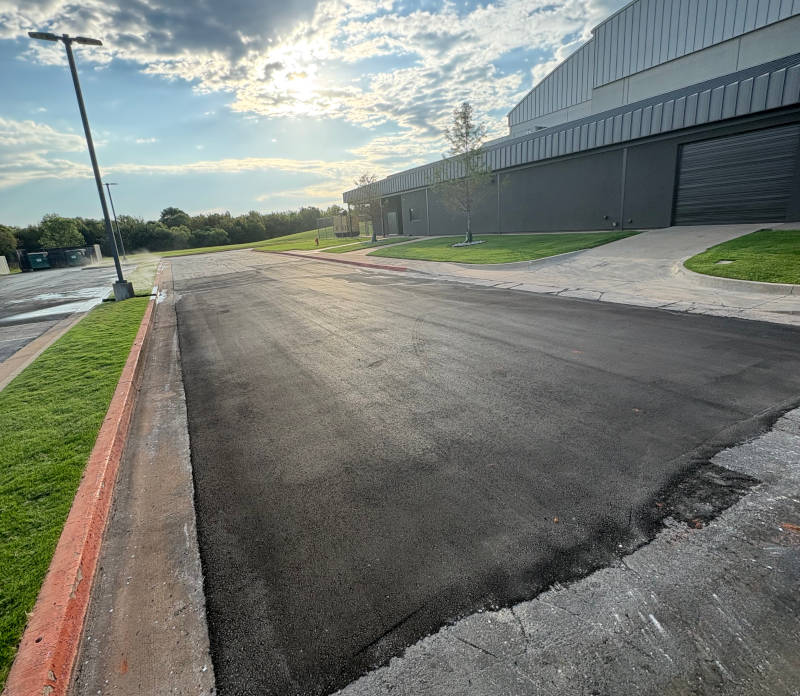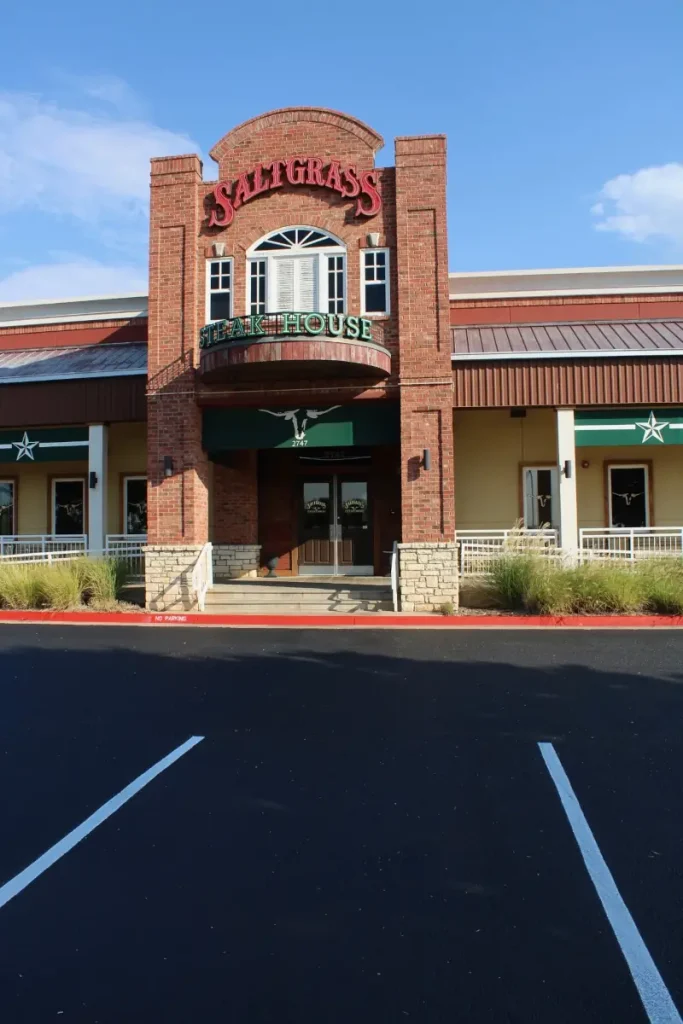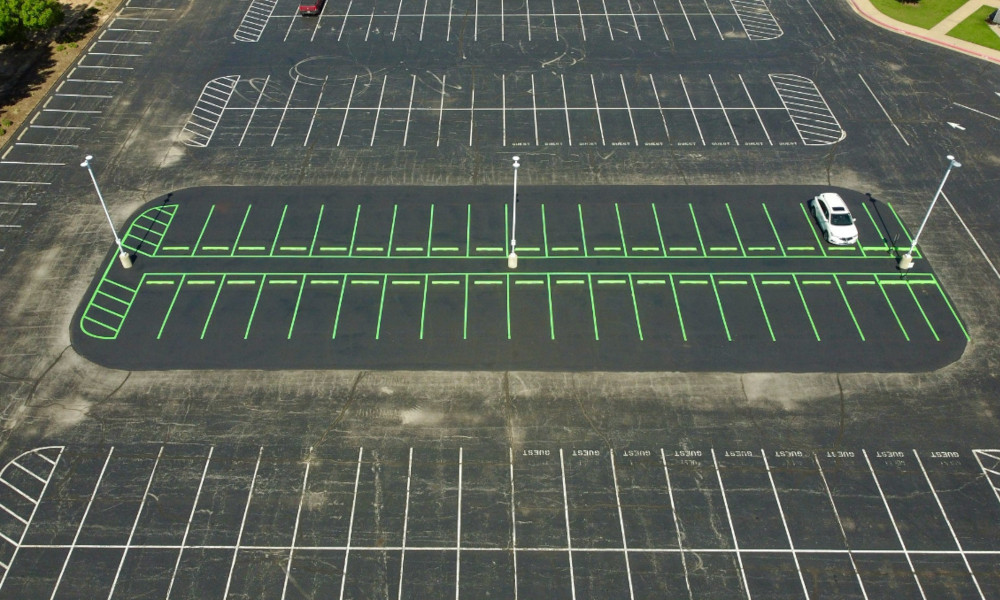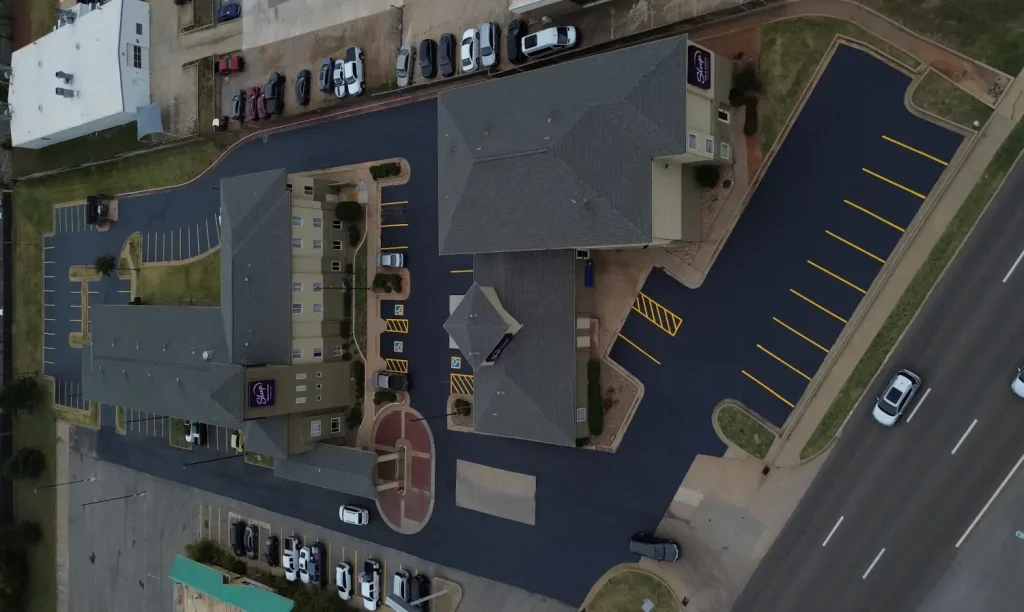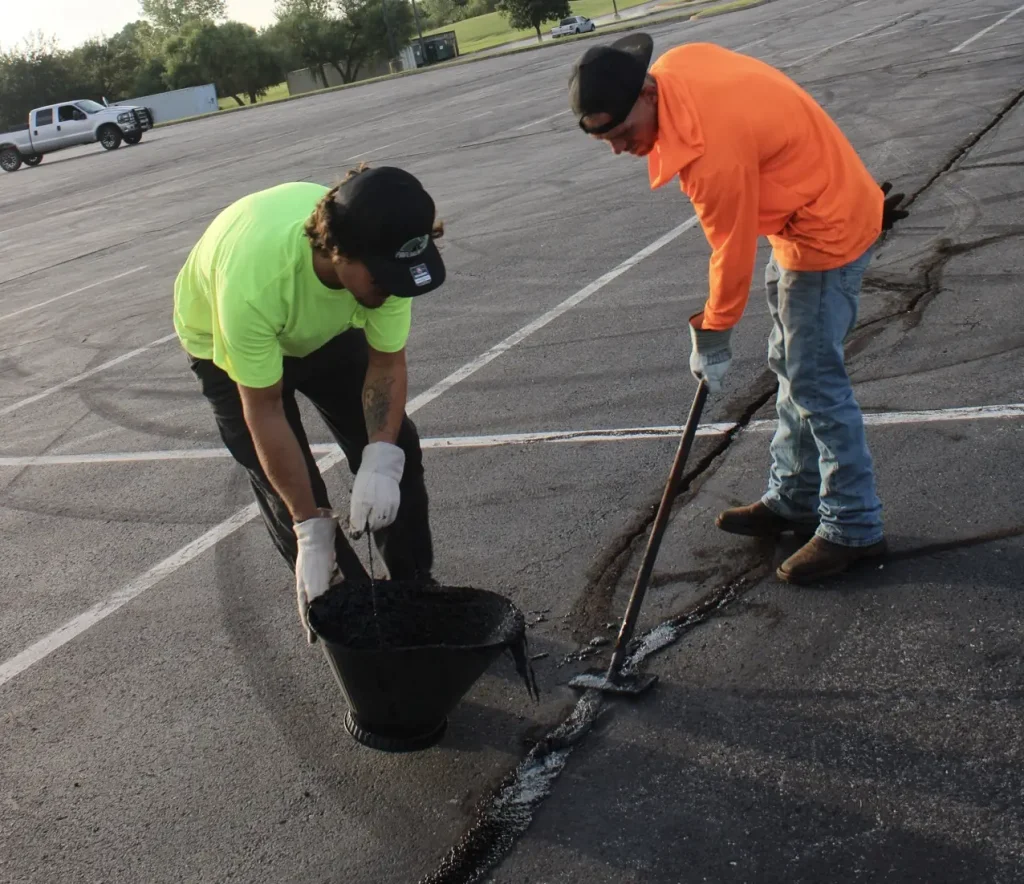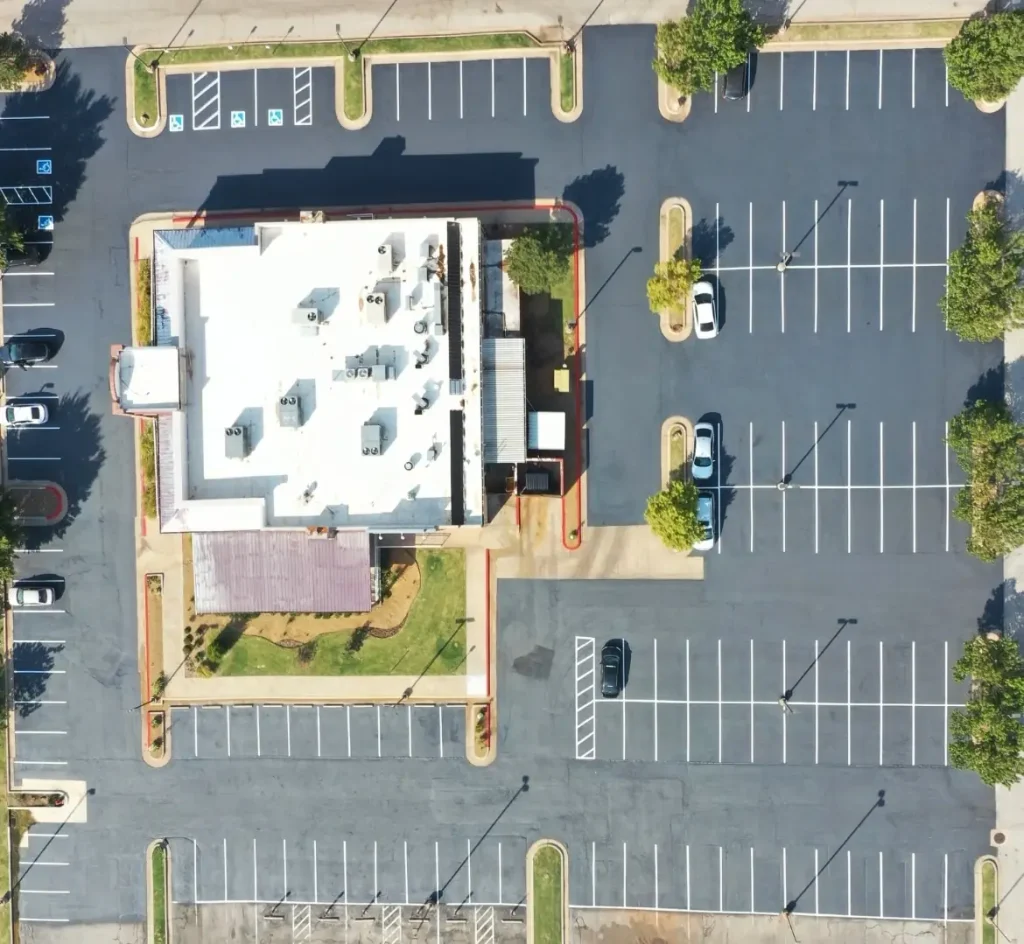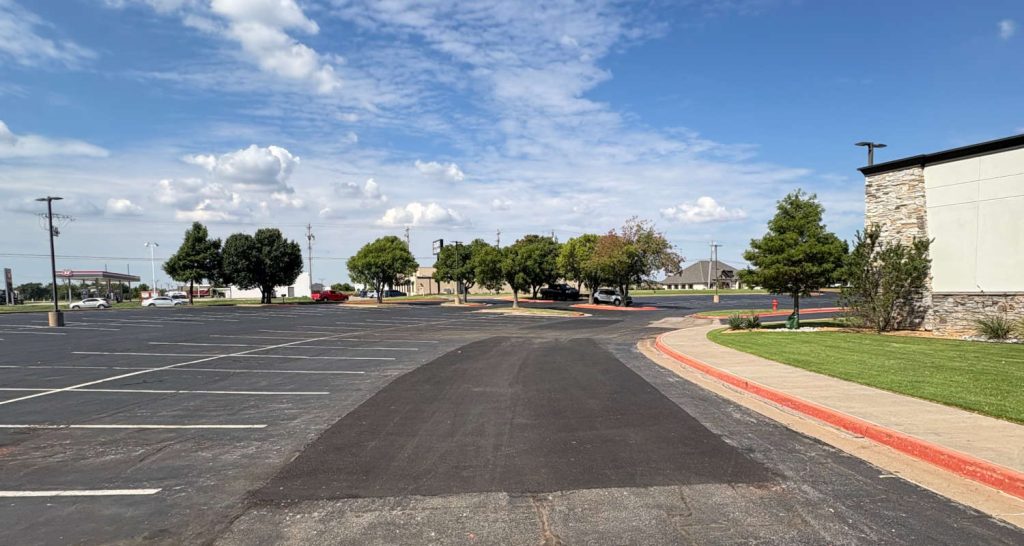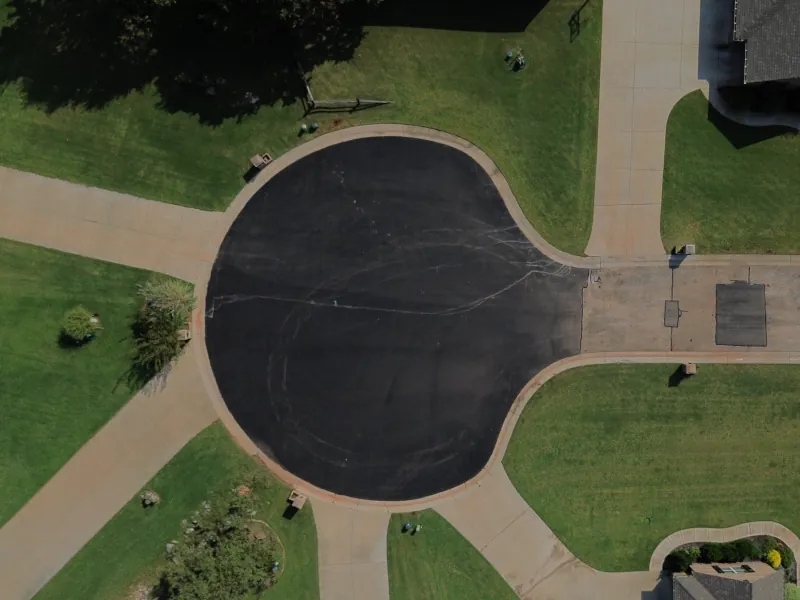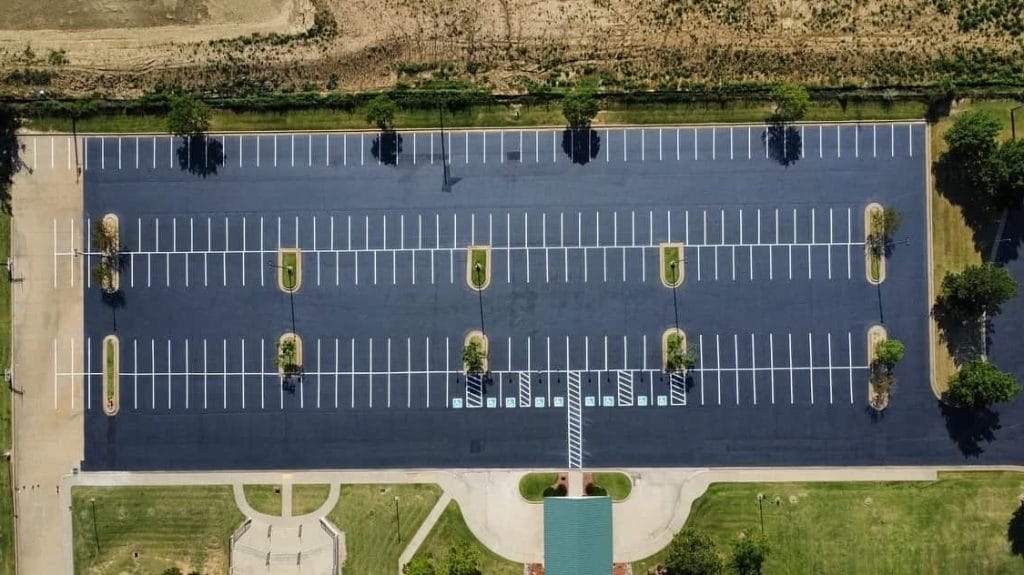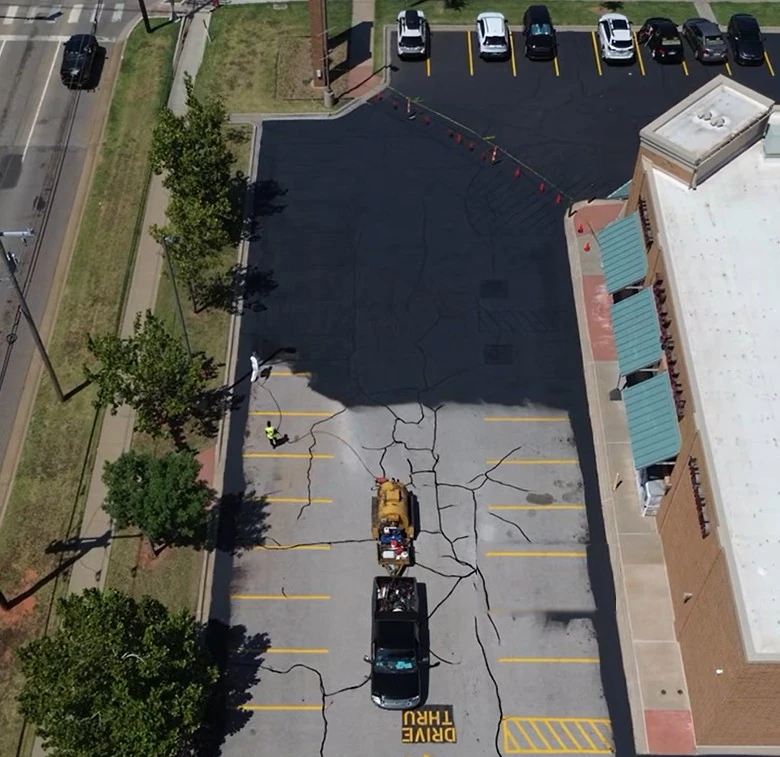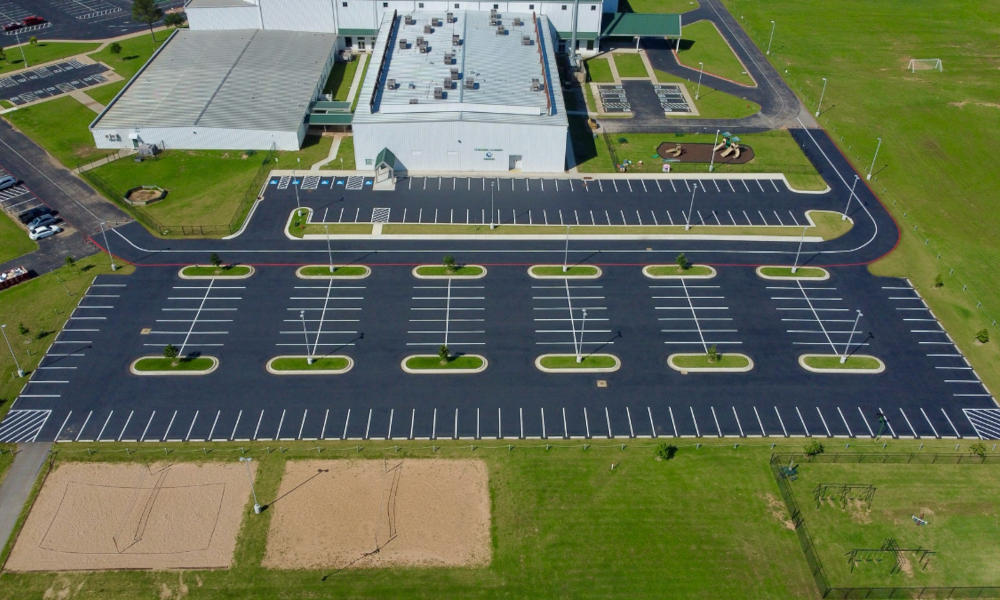In Oklahoma City, a parking lot is only as strong as the base beneath it. While asphalt thickness often gets the most attention, it is the foundation that determines how well the surface performs over time. With Oklahoma’s combination of expansive clay soils, heavy rainfall, and wide temperature swings, the base layer plays a crucial role in preventing cracks, ruts, and premature failure. Understanding how thick that base should be and how to build it correctly can make the difference between a parking lot that lasts five years and one that lasts twenty.
Base Thickness by Traffic Load
Base thickness requirements vary significantly based on the type and frequency of traffic your parking lot will handle. Here are the standard specifications for Oklahoma City:
| Traffic Type | Aggregate Base | Asphalt Thickness |
| Light Duty (Cars, SUVs, light pickup trucks) | 4-6 inches | 2-3 inches |
| Medium Duty (Delivery trucks, box trucks, heavy pickups) | 6-8 inches | 3-4 inches |
| Heavy Duty (Semi-trucks, garbage trucks, heavy equipment) | 8-12 inches | 4-6 inches |
Oklahoma’s Expansive Clay Soil Challenge
Oklahoma City sits on expansive clay soils that dramatically expand when wet and contract when dry. This soil movement is one of the primary causes of parking lot failure in the metro area.
Oklahoma Clay Soil Adjustments:
- Add 1-2 inches to the base thickness recommendations above
- Poor soil conditions may require up to 4 additional inches of base material
- Consider geotextile fabric between subgrade and base for severe clay conditions
- Proper drainage is critical to prevent water infiltration into clay subgrade
A soil test performed by a geotechnical engineer can determine if your site requires additional base thickness. This typically costs $500-1,200 but can prevent costly failures down the road.
Cost Implications of Base Thickness
Base material and installation costs in Oklahoma City (2025 pricing):
- Aggregate base material: $12-18 per ton delivered
- Installation cost: $1.50-2.50 per square foot per inch of base thickness
- 6-inch base for 10,000 sq ft lot: approximately $9,000-15,000
- Adding 2 inches of base adds roughly $3,000-5,000 to a 10,000 sq ft project
While increasing base thickness adds upfront cost, it significantly extends parking lot lifespan and reduces maintenance expenses. A properly built base can be the difference between a parking lot lasting 15 years versus 25+ years.
When to Upgrade Base Thickness
Consider increasing base thickness beyond the standard recommendations when:
- Soil testing reveals poor subgrade conditions or high plasticity clay
- The site has drainage issues or is in a low-lying area prone to water accumulation
- Traffic patterns include turning movements, heavy braking zones, or delivery areas
- The parking lot will see occasional traffic heavier than its primary designation
- You want to maximize longevity and minimize long-term maintenance costs
Base Material Types for Oklahoma
Not all aggregate base materials perform equally in Oklahoma City’s climate. The most common options include:
Crushed Limestone (Most Common)
The standard choice for Oklahoma parking lots. Compacts well, readily available locally, and cost-effective at $12-16 per ton. Limestone base provides excellent stability when properly compacted to 95% modified Proctor density.
Recycled Asphalt Millings
Can work as a cost-saving option at $8-12 per ton, but quality varies significantly. Only use millings from a reputable source with consistent gradation. Not recommended for heavy-duty applications.
Crushed Concrete
Similar performance to limestone at $10-14 per ton. Good option if locally available from demolition projects. Requires proper crushing and gradation to work effectively as base material.
Why This Matters
The base is the foundation of your parking lot. Skimping here to save a few thousand dollars upfront typically leads to tens of thousands in premature asphalt repairs or full asphalt replacement. A properly constructed base:
- Prevents alligator cracking and structural failure
- Manages water drainage to protect the asphalt surface
- Distributes traffic loads to prevent rutting and depressions
- Accommodates Oklahoma’s soil movement without transferring stress to the pavement
The difference between a contractor who builds proper base and one who cuts corners is the difference between a parking lot that requires major repairs in 8 years versus one that lasts 20+ years with only routine maintenance.

